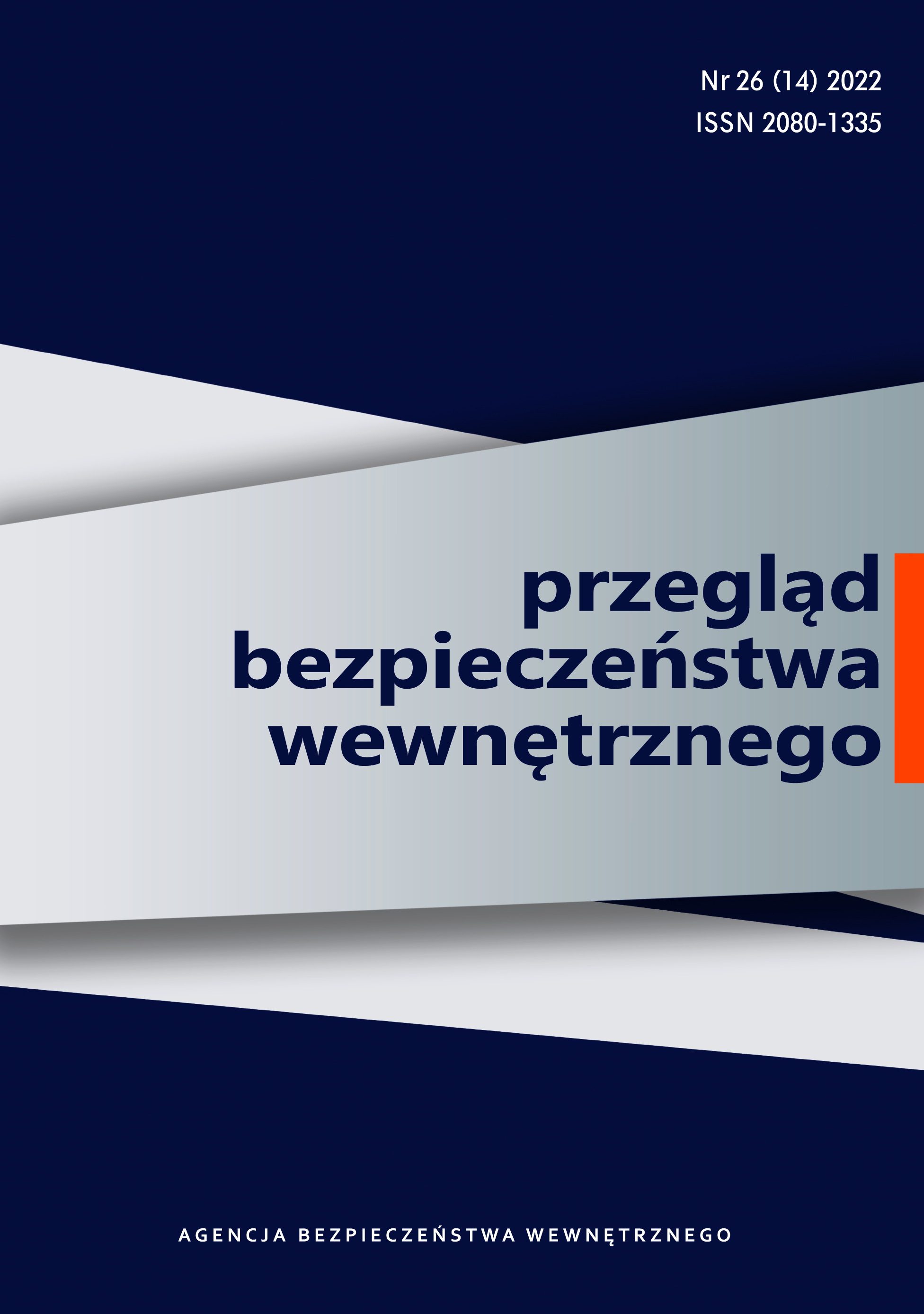Abstrakt
Zamach stanu, do którego doszło 19 sierpnia 1953 r. w Teheranie, był
brytyjsko-amerykańską tajną operacją wywiadowczą, zaplanowaną
i wykonaną przy udziale grupy irańskich rojalistów. Głównym celem
rządów Wielkiej Brytanii i Stanów Zjednoczonych było utrzymanie
wpływów politycznych w Iranie bez ujawniania swego zaangażowania.
Wydarzenia te, uznawane za przejaw zewnętrznej ingerencji
w politykę państwa, zajmują niezwykle ważne miejsce we współczesnej
irańskiej świadomości historycznej i politycznej oraz determinują
stosunki Iranu ze Stanami Zjednoczonymi, a tym samym wpływają na
bezpieczeństwo całego regionu Bliskiego Wschodu. Autorka przedstawia
trzy główne uwarunkowania tego zamachu. Zalicza do nich:
brytyjsko-irański konflikt na tle nacjonalizacji sektora naftowego, dokonanej
przez premiera Mohammada Mosaddegha, niebezpieczeństwo
związane z włączeniem Iraku w strefę wpływów komunistycznych,
a także czynniki wewnętrzne, w tym spory w ramach rządzącej
koalicji. Autorka stara się odpowiedzieć na pytania: jak kształtowała
się brytyjska polityka wobec Iranu dotycząca eksploatacji ropy naftowej,
jakie były przyczyny zaangażowania się Amerykanów w tajne
działania Secret Intelligence Service w Teheranie w latach 1952–1953,
a także czy zamach stanu mógł być wynikiem działań wyłącznie wewnętrznej opozycji wobec Mohammada Mosaddegh.
Bibliografia
Abrahamian E., Historia współczesnego Iranu, Warszawa 2011.
Abrahamian E., The Coup: 1953, the CIA and the Roots of Modern U.S.–Iranian Relations, New York 2013.
Azimi F., Unseating Mosaddeq. The Configuration and Role of Domestic Forces, w: Mohammad Mosaddeq and the 1953 Coup in Iran, M. Gasiorowski, M. Byrne (red.), Syracuse 2004, s. 27–101.
Bamberg J., The History of the British Petroleum Company, t. 2: The Anglo-Iranian Years, 1928–1954, Cambridge 1982.
Bayandor D., Iran and the CIA. The Fall of Mosaddeq Revisited, New York 2010.
Behrooz M., The 1953 Coup in Iran and the Legacy of the Tudeh, w: Mohammad Mosaddeq and the 1953 Coup in Iran, M. Gasiorowski, M. Byrne (red.), Syracuse 2004, s. 102–125.
Ebrahimi M., Yusoff K., British and Iran: Harmful Harvest of 1951 Oil Negotiations, „Asian Social Science” 2015, nr 1, s. 1–7.
Elm M., Oil, power, and principle: Iran’s oil nationalization and its aftermath, New York 1992.
Gasiorowski M., U.S. Perceptions of the Communist Threat in Iran during the Mossadegh Era, „Journal of Cold War Studies” 2019, nr 21 (3), s. 185–221.
Ghani Q., Jaddasztha-je Dr. Qassem Ghani, t. 9, London 1982.
Heiss M.A., The International Boycott of Iranian Oil and the Anti-Mosaddeq Coup of 1953, w: Mohammad Mosaddeq and the 1953 Coup in Iran, M. Gasiorowski, M. Byrne (red.), Syracuse 2004, s. 178–200.
Heiss M.A., The United States, Great Britain, and the Creation of the Iranian Oil Consortium, 1953–1954, „The International History Review” 1994, nr 3, s. 511–535.
Hirszowicz Ł., Iran 1951–1953: nafta, imperializm, nacjonalizm, Warszawa 1958.
Katouzian H., Mosaddeq’s Government in Iranian History. Arbitrary Rule, Democracy and the 1953 Coup, w: Mohammad Mosaddeq and the 1953 Coup in Iran, M. Gasiorowski, M. Byrne (red.), Syracuse 2004, s. 1–26.
Katouzian H., The Persians. Ancient, Mediaeval and Modern Iran, Yale 2009.
Keddie N., Współczesny Iran. Źródła i konsekwencje rewolucji, Kraków 2007.
Khandagh N., The historical background of the Tudeh Party (Mass Party) of Iran 1941-47, „European Journal of Research and Reflection in Arts and Humanities” 2016, nr 2, s. 1–25.
Kinzer S., All the Shah’s Men: An American Coup and the Roots of Middle East Terror, New Jersey 2008.
National Archives and Records Administration, RG 59, CDF, Box 4114, 788.001/6-751, Review of Communist Activity in Iran during May 1951, czerwiec 1951 r.
Siavoshi S., The Oil Nationalization Movement, 1949-53, w: A Century of Revolution.
Social Movements in Iran, J. Foran (red.), Minneapolis 1994, s. 106–134. Young T.C., The National and International Relations of Iran, w: Near Eastern Culture and Society, T.C. Young (red.), Princeton 2017, s. 188–204.
Źródła internetowe
Corrigan C., The Battle for Iran, Central Intelligence Agency History, https://nsarchive2.gwu.edu//dc.html?doc=4404303-Document-3-Central-Intelligence-Agency-History[dostęp: 15 II 2020].
Dr Mohammad Mossadegh Biography, The Mossadegh Project, http://www.mohammadmossadegh.com/biography/ [dostęp: 5 III 2020].
Encyclopaedia Britannica, A. Augustyn i in. (red.), https://www.britannica.com/ [dostęp: 18 XII 2019].
Foreign Relations of the United States 1952–1954, Iran, 1951–1954, NIE-75/1, ttps://www.gov.readingroom/docs/DOC_0000119711.pdf [dostęp: 5 III 2020]; Probable Developments in Iran through 1953, 9 I 1953 r., https://static.history.state.gov/historicaldocuments/frus1951-54 Iran/pdf/frus1951-54Iran [dostęp: 5 III 2020].
International Court of Justice, Order of July 5th, 1951 r., Anglo-Iranian Oil Co. Case, Request for the Indication of Interim Measures of Protection, https://www.icj-cij.org/files/case-related/16/016-19510705-ORD-02-00-EN.pdf [dostęp: 3 III 2020].
Ladjevardi H., Interview with Sir George Middleton, Iranian Oral History Project, Harvard’s Center for Middle Eastern Studies, 1981 r., https://iiif.lib.harvard.edu/manifests/view/drs:2833070$1i [dostęp: 3 III 2020].
Parviz M., Oil agreements in Iran, Encyclopaedia Iranica, 2004 r., http://www.iranicaonline.org/articles/oil-agreements-in-iran [dostęp: 5 I 2020].
Probable Developments in the World Situation through Mid-1953, Freedom of Information Act Electronic Reading Room, SE-13, 24 IX 1951 r., https://www.cia.gov/library/readingroom/document/0000119697 [dostęp: 5 III 2020].
The Current Crisis in Iran, 16 III 1951 r., Freedom of Information Act Electronic Reading Room, SE-3, http://www.foia.cia.gov/document/0000008881 [dostęp: 5 III 2020].
The Tudeh Party: Vehicle of Communism in Iran, Freedom of Information Act Electronic Reading Room, ORE 23-49, 18 II 1949 r., http://www.foia.cia.gov/document/0000258385 [dostęp: 5 III 2020].
United States Policy Regarding the Present Situation in Iran, National Security Archive, NSC 136/1, 20 XI 1952 r., https://nsarchive2.gwu.edu/NSAEBB/NSAEBB126/iran521120.pdf [dostęp: 5 III 2020].
Artykuły zamieszczone w czasopiśmie objęte są licencją CC BY-NC-SA 4.0 (Uznanie autorstwa – Użycie niekomercyjne 4.0 Międzynarodowe).
